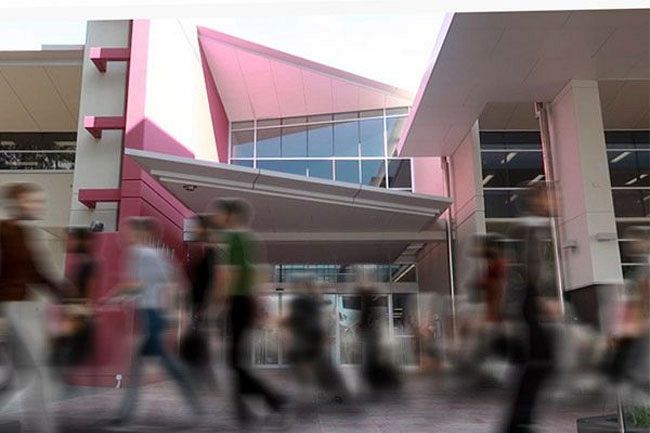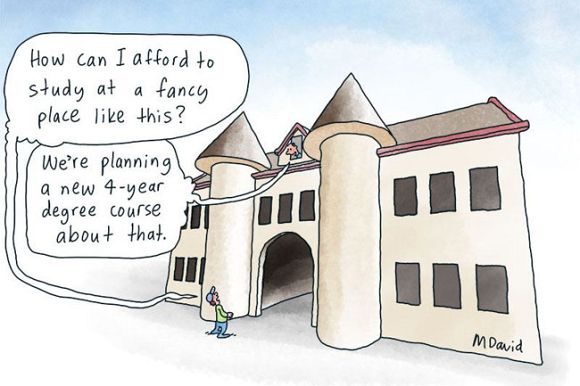With universities overwhelmingly being governed by corporate interests, a new inquiry seeks to reform the higher education system back to prioritising learning, writes Dr Raffaele Ciriello.
AUSTRALIAN PUBLIC universities are no longer run for education. They have been taken over by a managerial elite that prioritises profits over academic integrity. Vice-chancellors earn more than the Prime Minister, with 16 of 41 making over $1 million annually.
Meanwhile, academics face insecure work, PhD students live below the poverty line and international students bankroll the system while having no say in governance.
A broken governance system entrenches this imbalance. Of 545 university governing body positions, only 137 are elected by staff, students or graduates, while corporate executives and consultants hold 143. Decisions prioritise financial growth over research and education, turning universities into corporate fiefdoms.
A system built for executives, not educators
Casualisation has led to rampant wage theft, with universities underpaying staff by over $400 million nationally. At the University of Sydney, management spent $12.3 million on consultants — more than it repaid to casual staff. Despite $70.1 million in outstanding wage theft liabilities, universities continue spending millions on external contractors instead of investing in educators.
PhD students, the backbone of Australia’s research sector, bear the brunt of the burden. The 2025 base stipend is $33,511 per year, or $16 per hour — far below Australia’s minimum wage of $47,627 per year. International PhD students pay up to $60,000 in tuition while working unpaid, without employment rights, social benefits or basic institutional recognition.
By contrast, PhD candidates in Germany, Denmark and Switzerland are paid employees with benefits. Unsurprisingly, domestic PhD enrolments have dropped 8% since 2018. Without reform, Australia will continue losing its best researchers to better-funded international programs.
Universities have become addicted to international student fees, which account for up to 40% of revenue. COVID-19 exposed this financial fragility, yet instead of reform, universities cut staff while chasing full-fee-paying enrolments.
At Monash University, the vice-chancellor was paid $1.6 million in 2023, even as the university faced a $9 million deficit and ongoing wage theft disputes. When corporate executives run universities, profits trump education.
A broken governance model — and a chance to fix it
The root of the crisis is governance. Australian universities operate under a colonial-era hierarchical model, where unelected administrators wield unchecked power. In contrast, Indigenous governance traditions prioritise collective decision-making and accountability — principles successfully adopted in European university systems.
In Germany, Switzerland, France and Scandinavia, university deans are elected by faculty and students, and major policy decisions require democratic approval. Academic freedom is constitutionally protected — unlike in Australia, where self-imposed ethics processes function more as compliance tools than genuine ethical safeguards.
If Australia does not reform its governance model, it will continue to stifle critical research – particularly in marginalised areas – while universities operate as profit-driven bureaucracies.
The inquiry: A rare chance to reclaim universities
The National Tertiary Education Union’s (NTEU) ‘Ending Bad Governance — For Good’ report exposes the scale of corporate mismanagement in higher education. The report documents $226 million in confirmed wage theft, with broader underpayments approaching $400 million and affecting 150,000 staff.
Meanwhile, universities spent $734 million on consultants in 2023, even as job cuts continued.
Governance is dominated by corporate interests, not education. Only 25% of university governing body seats are held by staff, students or graduates. Casualisation, outsourcing and financial mismanagement have become the norm.
The Parliamentary Inquiry into University Governance, open until 3 March 2025, is a rare chance to demand real accountability. If we do nothing, universities will continue to serve executives, not students and staff.
How we take universities back
- Elect university leadership democratically. Faculty, staff and students must have the power to elect deans and key administrators, ensuring leadership is accountable to the academic community, not corporate interests.
- Enforce academic freedom and intellectual diversity. Replace restrictive ethics compliance regimes with policies that legally protect critical research, especially in marginalised communities.
- End PhD exploitation and wage theft. Guarantee fair wages, employment rights and governance participation for PhD students and casual staff.
- Replace corporate governance with democratic oversight. Universities must adopt cooperative governance structures, inspired by Indigenous decision-making and European university models, giving stakeholders real power over policy and funding.
By demanding these reforms, we can reclaim universities as places of learning, research and public good — not profit-driven bureaucracies. The Parliamentary Inquiry into University Governance is our best chance to act — let’s not waste it.
Submit your views to the Senate before the deadline (3 March 2025).
Dr Raffaele F Ciriello holds a BSc in Information Systems from the University of Stuttgart and an MSc and PhD from the University of Zurich (2017). He is a Senior Lecturer in Business Information Systems at the University of Sydney, specialising in compassionate digital innovation.
 This work is licensed under a Creative Commons Attribution-NonCommercial-NoDerivs 3.0 Australia License
This work is licensed under a Creative Commons Attribution-NonCommercial-NoDerivs 3.0 Australia License
Support independent journalism Subscribe to IA.

Related Articles
- Unchecked vigilante violence on campus smacks of ambient fascism
- Money-mad universities fail to stop violence against protesters
- Universities Accord fails to restore integrity to higher education
- Universities Accord seeks to reform education and immigration policy
- Government report stresses need for reform on higher education












